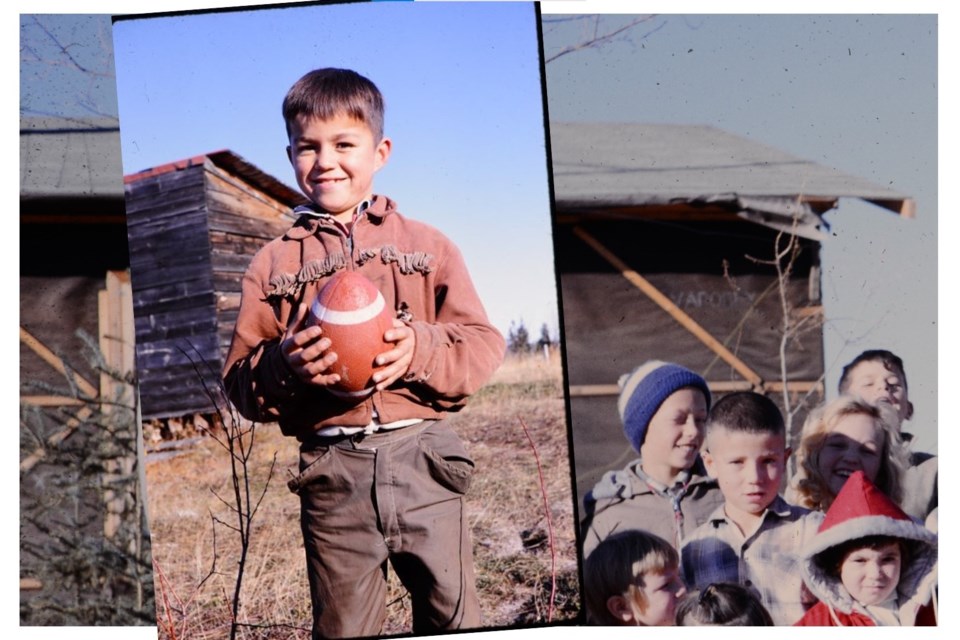I’m glad Sunday falls after Canada Day because I don’t want to take anything away from the celebration of the positives. They are many. I wouldn’t want to live anywhere else.
That said, I don’t know that I’m so much ‘proud’ to be Canadian, as thankful. It has worked out very well for this fourth-generation Canadian of Anglo-Saxon heritage. Less so for some others. And in recent years I have learned just how much less so that was.
I remember when we lowered the Union Jack and raised the Maple Leaf. It was February 15, 1965. I was nine years old, living in a hamlet of about sixty people at the edge of the then-wilderness in northern Saskatchewan. Eighty miles of gravel road was our link to the closest pavement. Or telephones. Or electricity. It was as far north as the road would take us, in that part of the world then.
One of my friends at school was a boy I’ll call David. He and I would play together outdoors or at our house. It was always our house. Our tar-paper-wrapped plywood “bush house” had separate rooms, including a large living room.
David’s house was made of logs chinked with moss. One room. A couple of hundred yards away. It was yards, not meters. Meters, not metres. The metric system was foreign and bilingualism unknown.
David was Indigenous and his was the only Indigenous family in our little hamlet. I recall always being aware of that fact, but my nine-year-old, 1965-era mind never asked why. I had no problem holding that question without an answer.
Our lifestyle was different. I could see that, but somehow I believed my heritage entitled me to the wealth this land was producing more than to him. It was as though my little nine-year-old hands had mined minerals myself. Harvested logs. Directed corporations and government. And I knew he had not. At least, that was the message I heard in our culture and we already knew everything we needed to know.
We moved away from the hamlet a few months after the changing-of-the-flags. I went to school in Winnipeg and after high school in Toronto. Yes, I had to paddle the canoe-that-was-my-life, but the stream was going my way and the opportunities of this land seemed to flow my direction.
In 2015, my brother and I returned to the little hamlet. A nostalgia tour, I suppose. We went to the hamlet cemetery and looked at the names of people we knew. People who seemed old when I was a boy, so there was no surprise. Just a date.
And then I came to another stone. It was David’s, and I realized the answer to the unasked question: His family lived in our little hamlet so he would not have to go to residential school. The pervasive inequity of decades became clear.
It’s long overdue that we mine our culture for moral character.
Reconciliation? Giddy up!
